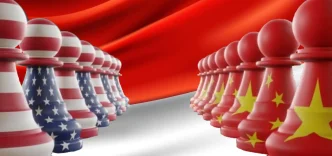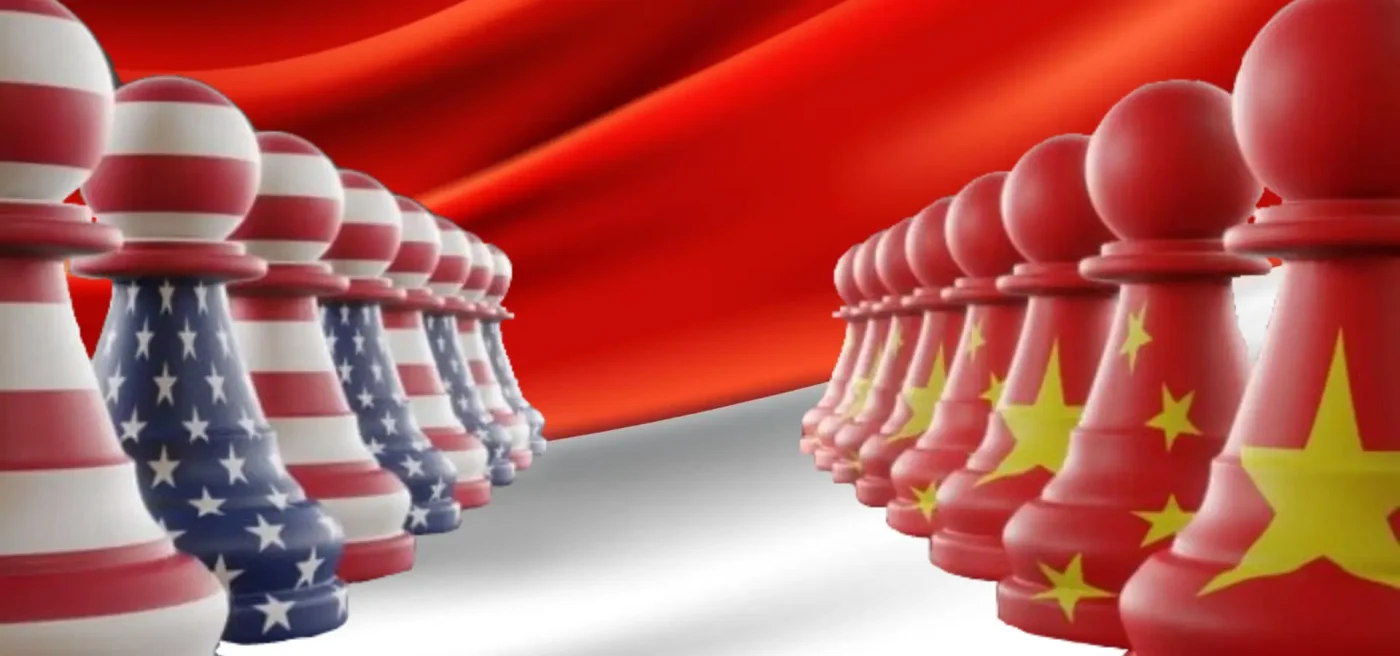A surprise trade agreement between the United States and China, signed on May 12, 2025, in Geneva, has brought a momentary sigh of relief to global markets, particularly for emerging economies like Indonesia. The deal, which postpones sweeping US tariffs on various countries for 90 days, signals a pause in the escalating trade tensions between the world’s two largest economies. Yet, as Indonesian policymakers and business leaders assess the implications, many warn that this truce is merely a temporary reprieve in a landscape increasingly defined by economic nationalism and fragmented international commerce.
A Fragile Truce with Lingering Tariffs
The core of the US-China agreement lies in a mutual reduction of tariffs, though not a complete rollback. Chinese goods entering the US now face a 30 percent tariff, down from a punitive 125 percent, while American products entering China are subject to a 10 percent levy. While this marks an improvement, the remaining tariffs continue to burden global supply chains, in which Indonesia plays a significant role. As a key supplier of raw materials and intermediate goods to both nations, Indonesia’s factories, ports, and workforce remain vulnerable to any disruptions between the two economic giants.
Economists in Jakarta caution that even this partial détente does not erase the damage inflicted by years of trade hostilities. If the US, the world’s largest importer, further restricts purchases from China, the largest exporter, the latter could flood emerging markets like Indonesia with excess inventory. Such a scenario could destabilize local industries already grappling with competitive pressures. As one trade analyst in Jakarta noted, “We’re not out of the woods yet. This deal buys time, but the underlying rift between the US and China remains unresolved.”
Indonesia’s Position in the Global Supply Chain
Indonesia’s economy, heavily integrated into the supply chains of both the US and China, stands at a critical juncture. The country provides essential components for industries ranging from electronics to textiles, many of which are destined for these major markets. Any turbulence in US-China relations sends immediate shockwaves through Indonesia’s industrial hubs, affecting employment and export revenues. The Ministry of Trade in Jakarta estimates that a full-scale trade war could shave off significant growth from the nation’s GDP, a risk that looms large despite the recent agreement.
Moreover, the broader erosion of an open, rules-based global trade system—once a cornerstone for emerging economies—has compounded these challenges. Protectionism, once an exception, has become a norm, with economic nationalism reshaping international commerce. The US under President Donald Trump, now in his second term, has led this shift, using tariffs to compel foreign companies to invest billions in American soil. This strategy, aimed at reviving domestic jobs and factories, echoes measures Indonesia itself has employed, such as bans on raw material exports and local content requirements—policies long criticized by Western economies.
Lessons from Economic Nationalism
The US approach offers both a cautionary tale and a potential blueprint for Indonesia. While Trump’s policies have drawn foreign investment, they have also fragmented global trade networks, creating uncertainty for countries reliant on exports. For Indonesia, the lesson is clear: protecting domestic industries may be necessary, but it must be balanced with strategies to remain competitive on the world stage. As a senior official from Indonesia’s Ministry of Industry stated, “We need policies that encourage investors to see Indonesia as a stable, long-term partner—not just a market to exploit during global downturns.”
Indonesia’s past measures, like the export ban on unprocessed natural resources, aimed to push local industries up the value chain. However, critics argue that prolonged protectionism risks complacency, discouraging firms from innovating or investing in technology. The US-China deal, while a temporary shield, underscores the urgency for Indonesia to build resilience through diversified markets and stronger domestic capabilities. This could mean forging deeper trade ties within ASEAN or accelerating investments in high-value sectors like renewable energy and digital technology.
The Uncertain Road Ahead
The 90-day postponement of broader US tariffs offers a window for negotiation, but the outcome remains far from certain. Talks between the US and China over the next three months will determine whether a more enduring deal can be reached—or if hostilities will flare anew. For Indonesia, this uncertainty demands both strategic preparation and diplomatic agility. Analysts suggest that Jakarta must use this period to strengthen regional alliances, such as through the Regional Comprehensive Economic Partnership (RCEP), while advocating for fairer global trade rules.
Public sentiment in Indonesia reflects a mix of cautious optimism and concern. On social media platforms like X, many users express relief at the temporary halt in trade tensions, yet skepticism persists about long-term stability. One user posted, “A 90-day delay is just a bandage on a deeper wound—Indonesia needs to prepare for the worst.” Such views highlight the broader anxiety among emerging economies about their place in a fragmented global order.
Balancing Protection with Progress
As Indonesia navigates this new reality, the government faces the delicate task of balancing protectionist measures with the need for global integration. Temporary policies to safeguard local industries—such as import controls or domestic purchase requirements—may provide short-term relief, but they must be paired with incentives for innovation. Without such a balance, there is a risk that firms will grow dependent on state support, lagging behind international competitors.
The US-China deal also serves as a reminder of the structural challenges facing global trade. Even if tariffs are further reduced, the rift between the two powers reflects deeper ideological and economic divides that are unlikely to be resolved soon. For Indonesia, this means anticipating future disruptions and building economic buffers at home. Investments in infrastructure, education, and technology could position the country to weather global shocks, while diplomatic efforts abroad could secure alternative markets and partnerships.
A Broader Shift in Global Dynamics
Beyond immediate trade concerns, the US-China agreement signals a broader shift in global economic dynamics. The rise of protectionism and economic nationalism, exemplified by US policies under Trump, has redefined the rules of international commerce. Emerging economies like Indonesia, once beneficiaries of open markets, must now adapt to a landscape where self-reliance and regional cooperation are increasingly vital. This shift is evident in cultural expressions as well, such as a mural by Berlin-based graffiti artist Eme Freethinker in Mauerpark, Berlin, depicting Trump alongside the phrase “Made in China”—a stark commentary on the intertwined yet contentious relationship between the two nations.
For Indonesian policymakers, the mural’s message resonates as a metaphor for the complexities of global trade. Dependency on major powers comes with risks, and the nation must chart a path that prioritizes sovereignty without sacrificing economic opportunity. This could involve leveraging Indonesia’s vast natural resources and youthful workforce to attract sustainable investments, rather than merely serving as a pawn in the US-China rivalry.
As the 90-day negotiation period unfolds, Indonesia watches closely, aware that the outcome will shape not just its economy but the broader trajectory of global trade. For now, the US-China deal offers a fleeting moment of stability, but the road ahead remains fraught with uncertainty. The challenge for Jakarta lies in preparing for all possibilities—building resilience at home while positioning itself as a key player in a rapidly changing world.
















